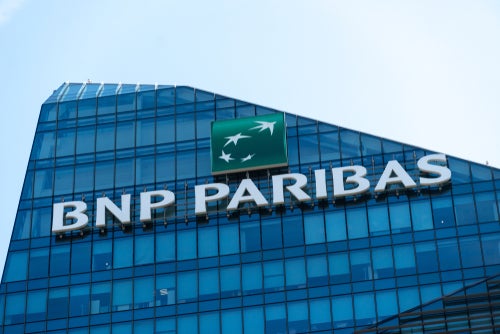Operating leasing is about to take off in Romania. Rules
governing this might be simpler than those for finance leasing.
The year 2008 is associated by many leasing industry
representatives with the maturity phase of the Romanian finance
leasing market, a year when the market is expected to exceed the
€5bn milestone.
 Another particular development has been the entry on to the
Another particular development has been the entry on to the
Romanian market of several multinational companies specialised in
operating leasing and fleet management services. This, together
with the increasing demand for integrated services, could lead in
the near future to growth rates in operating leasing that exceed
those of the finance leasing segment.
One of the specific features of the Romanian leasing market is
the strict regulatory regime applicable to finance leasing
operations.
Specifically, only credit institutions or entities authorised by
the National Bank of Romania (NBR) as non-bank financial
institutions are permitted to carry on finance leasing business. No
such regulatory authorisation is required for operating leasing
business.
A foreign company authorised as a credit or financial
institution in an EU member state other than Romania may use the EU
passporting system to carry on a financial leasing business in
Romania, either directly or by way of a branch, without being
required to be authorised by the NBR. If, however, the foreign
company has no specific regulatory authorisation as a credit or
financial institution in its home country (for example, if such
authorisation is not required) then it will need to obtain such
authorisation in Romania. “One of the specific features of the
Romanian leasing market is the strict regulatory regime applicable
to finance leasing operations.”
How well do you really know your competitors?
Access the most comprehensive Company Profiles on the market, powered by GlobalData. Save hours of research. Gain competitive edge.

Thank you!
Your download email will arrive shortly
Not ready to buy yet? Download a free sample
We are confident about the unique quality of our Company Profiles. However, we want you to make the most beneficial decision for your business, so we offer a free sample that you can download by submitting the below form
By GlobalDataRegulated finance leasing companies are generally restricted
from carrying out operating leasing activities. They are, however,
permitted to undertake operating leasing activities to the extent
it can be demonstrated that such activities are ancillary and
necessary to their main finance leasing business (for example, in
practice, finance leasing companies may lease out goods under
operating leasing agreements in cases where the goods are returned
or recovered following the termination of a finance lease).
What exactly is the distinction between a finance lease and an
operating lease? In brief, a finance leasing operation is a leasing
operation that transfers to the lessee the risks and rewards
incident to the ownership right over the leased asset. Romanian law
provides, however, for two different sets of classification
criteria to determine a finance lease, one applicable for
accounting purposes and one for tax purposes. The criteria are
similar, but not identical, as explained further below. It is not
100 per cent clear which of the two sets of classification criteria
are to be used for the purposes of determining the regulatory
regime applicable to a company’s leasing operations, and in
practice different interpretations may be encountered.
The accounting criteria for classifying an operation as a
finance lease are similar to the tax criteria, but are more
judgmental in nature and focus on the substance of the transaction
rather than the form.
Tax criteria are generally more straightforward to assess,
especially the conditions concerning the residual value and the
lease term. We would expect most leases to be qualified as the same
for accounting and for tax purposes, but it may be possible to
encounter exceptional cases where a lease is qualified as a finance
lease for tax purposes and as operating lease for accounting
purposes, or vice versa.
Income derived by companies from leasing operations is taxed in
Romania at a 16 per cent flat tax rate, irrespective of whether the
operations qualify as finance or as operating leasing.
The main tax distinction between finance and operating leasing
activities is that under a finance lease, tax depreciation is
recognised by the lessee.The lessor recognises a financial asset
and the lease instalments are considered to consist of principal
and interest payments to it. Whereas, in an operating lease, it is
the lessor that recognises and deducts the tax depreciation on the
leased item.
Another differentiation in tax treatment, which depends upon the
status of the lessor (that is, whether a finance leasing company or
operating leasing company), concerns the deductibility of bad-debt
provisions:
● Regulated finance leasing companies are required to set-up
credit-risk provisions are under the NBR methodology. Such
provisions are fully deductible for corporate tax purposes.
● On the other hand, operating leasing companies are only
allowed to deduct bad-debt provisions within the maximum percentage
of 30% of the value of their receivables. 100% deduction is
available only in cases of bankruptcy of the lessee.
From a VAT perspective, there is no differentiation between
finance and operating leases. Both types of leases generally
qualify as supplies of services subject to the general 19 per cent
VAT rate and VAT becomes chargeable at the date when each
instalment is due, as provided under the leasing agreement (no
delivery of goods is deemed to take place at the outset of the
lease).







